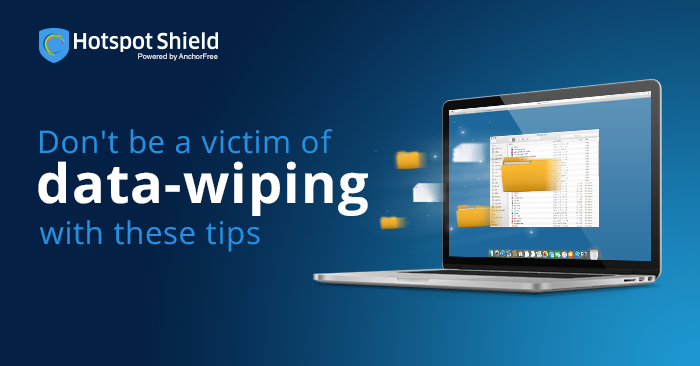How to get a Finnish IP address
The easiest way to improve your digital privacy is to switch your IP address using a VPN. We’ll …

If there’s anything more devastating than ransomware, it’s a data wiping attack. Ransomware, at the very least, gives you a way to realistically recover your files; once a data wiping attack hits, all the files in your system are deleted permanently, and recovery efforts are significantly harder, if not impossible. To protect yourself, you may want to consider downloading an anonymous VPN, among other safety precautions.
A data wiping attack is a type of cyber attack wherein the aim of the perpetrator is to completely wipe away all data on the targeted device. Most data wiping attacks are software-based, are carried out via the usual attack methods, and can be supported by social engineering and other infection techniques.
Data wiping is different from basic file erasure commands in that with the latter, only the virtual link to the file is deleted and the file remains in the hard disk. This means that the file can still be accessed using the right recovery tools. Data wiping, on the other hand, completely eradicates not just the virtual link to file, but also the file itself.
Therefore, a data wiping attack can be devastating because it makes it impossible for the victim to recover their lost files. A data wiping attack can result in substantial losses, especially for enterprises and large organizations.
Shamoon
The Shamoon computer virus is notorious for being involved in a number of headlining wiper attacks since first appearing in 2012, when it victimized Saudi Aramco and other oil firms in Saudi Arabia. The strain appeared again in November 2016, attacking several Saudi Arabian government offices.
StoneDrill
StoneDrill is believed to be an enhanced version of the Shamoon computer virus, which was found by Russian antivirus company Kaspersky Lab in March 2017 targeting European networks. StoneDrill is considered an enhanced version of Shamoon because of its improved evasion capabilities and an added ransomware module.
Dark Seoul
In March 2013, South Korea experienced widespread data wiping attacks that deleted the files of an estimated 32,000 personal computers. Several news organizations, banks and government offices were shut down as a result of the attack. The strain, which was named Dark Seoul, would resurface in 2015 to target the European logistics and transportation sector.
4 tips to protect your files from data wiping attacks
If you want to ensure that your files are protected from data wiping attacks, there are a number of precautions that you can consider to make this possible.
Hotspot Shield can make your online sessions protected against data wiping attacks by notifying you if you’re about to open an infected site. Hotspot Shield uses a database of websites that are known to be infected to make this possible. With this, you are immediately informed if there’s a potential attack coming your way.
To learn more about this and other benefits, visit the Hotspot Shield website today. To download the free version of Hotspot Shield, click here. Get more tips on online security and anonymity by reading our blog!
